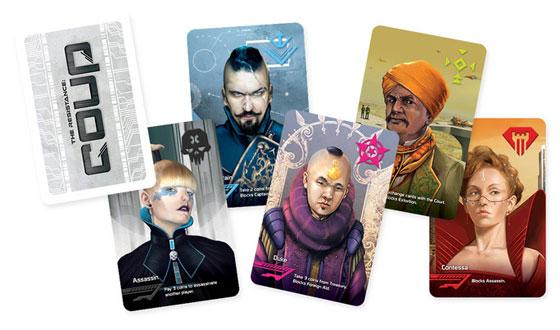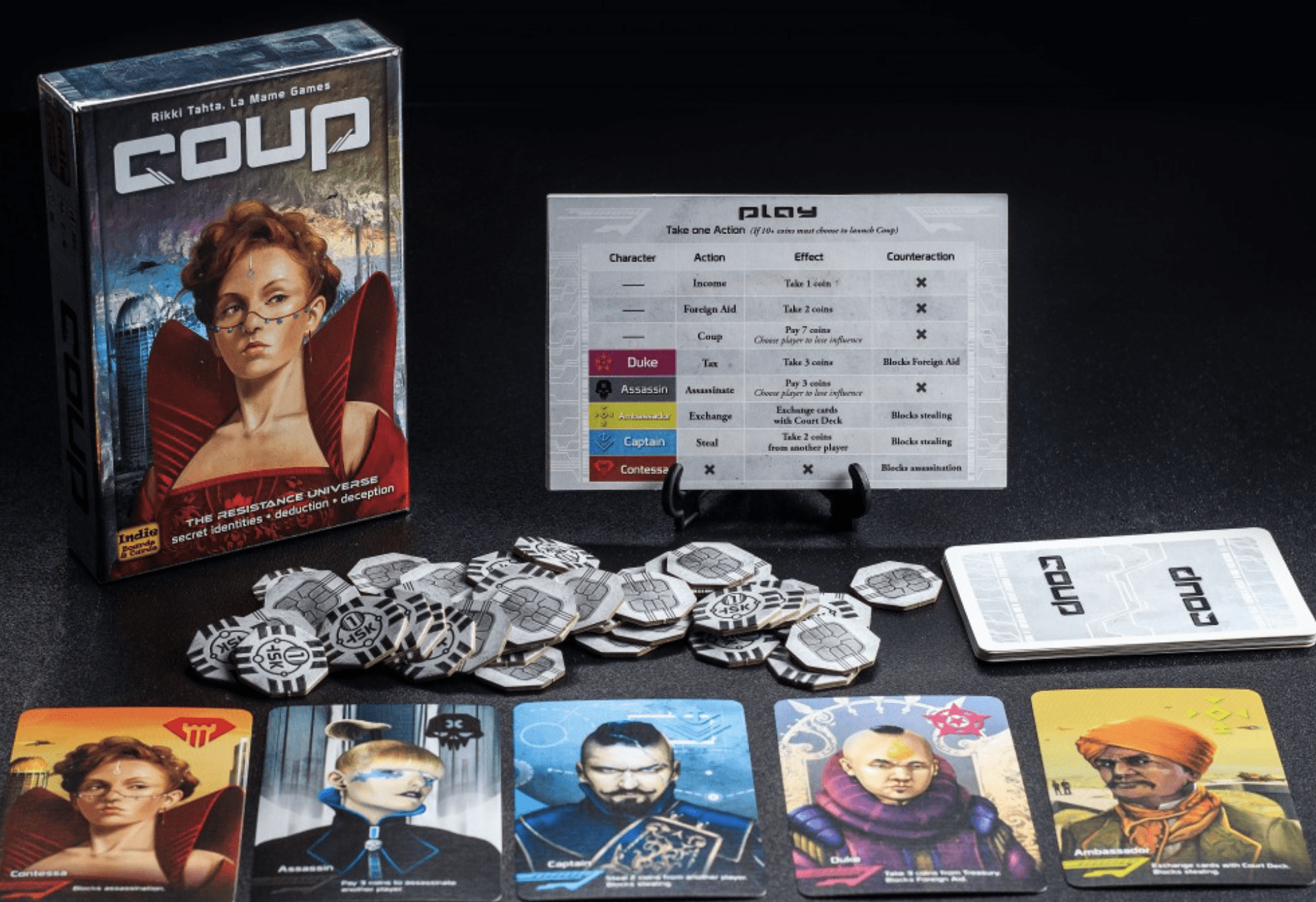INTRODUCTION
One game similar to our concept is Coup (designed by Rikki Tahta, published by Indie Boards & Cards). Players of Coup start off with a fixed amount of resources (characters and coin) and win by eliminating all other players.
THEME, MECHANICS & DESIGN
The theme, mechanics, and graphic design of Coup tie together well. Players act as powerful figures with varying influence over different officials in a dystopian futuristic government. Different character “influences” (e.g. Duke, Captain, Assassin, Contessa, etc.) grant players unique powers that give them an edge in the game (e.g. collecting or stealing coin, blocking certain player actions, assassinating another character, etc.). The fantasy of the game goes hand-in-hand with its social / fellowship aspect. The lying and misdirection of the gameplay parallel the sinister nature of a corrupt government. Characters are also drawn in a grotesque, sci-fi style on the playing cards.

Bluffing is encouraged during gameplay. Since players’ influences are hidden, players can also bluff about what characters they have (and use their abilities). If their bluff is called, however, they lose an influence; if a bluff is called wrongly, the accuser loses an influence. Players who lose all influence are eliminated.
One thing that’s very interesting about playing Coup is how much you’re tempted to bluff relative to other social deduction games (e.g. Werewolf). Even for generally conservative players (like myself), seeing people repeatedly get away with small, casual bluffs (e.g. drawing more coin from the pile by being a “Duke”) and getting away with it (or getting away with it yourself) tempts you to overdo it. Luckily, there are checks for this (see Abuse Handling section).
DIFFERENTIATION
Unlike other games in its genre (e.g. the Resistance, Werewolf), the characters players assume in Coup are variable. The Ambassador card allows you to swap for another character from the draw pile. Whenever someone wrongly accuses a player, that player reveals their character, discards it, and draws a new one. This adds another layer of strategy and variability to the game, as players must keep track of each others’ shifting influences.
ABUSE HANDLING
Players check each other by calling each others’ bluffs, and those who bluff too often are punished. Players who ignorantly accumulate too much coin naturally become the target of bluff-calling, assassinations, and coups. Finally, if you accumulate 10 coin, you are forced to coup. All these mechanisms and checks discourage simplistic, inflexible first-order strategies.
IMPROVEMENTS
Coup is quite enjoyable, especially when playing with close friends and / or people who enjoy bluffing and social intrigue. Its theme, mechanics, and design fit together well and makes the experience more immersive. It does get a bit predictable after repeated plays, however, given the lack of variety in character roles. This problem is especially true for small groups (3 people or less). I would probably add a couple more roles to alleviate this problem.



